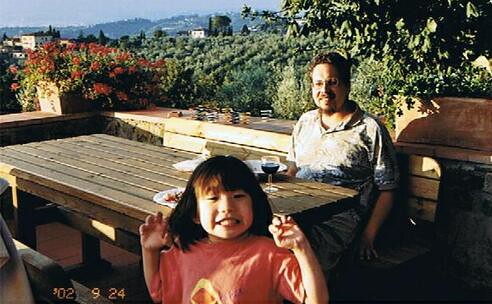🦋 Last Evenings on Earth
On re-reading, I find the last third of "Last Evenings on Earth" confusing. It seems like there is supposed to be some confusion, like that's the point of it -- the title suggests (and B seems to be worried) that B and his father die in Acapulco; but I'm pretty sure (though the ending is totally open) that's not what is going to happen, rather it's some element of their relationship that is dying. Bolaño sets this up at the beginning of the final section of the story when he says, There are things you can say and things that can't be said, B thinks, depressed. From this moment on, he knows that he is approaching the disaster. ... And here ends the parenthesis, here end the forty-eight hours of grace, when B and his father have visited the bars of Acapulco, have slept on the beach, worn out, have eaten and even laughed; here begins an icy period, a period seemingly normal but dominated by some frozen gods (gods who otherwise never interfere with the heat which reigns in Acapulco), a few hours which in another time, perhaps when he was a teenager, B would have called boredom, but nowadays he would never use that term; more likely disaster, a peculiar sort of disaster, a disaster which on top of everything else will distance B from his father -- the price they have to pay to live.
-- there's a lot strange about this paragraph -- why is this "the price they have to pay to live"? -- but I'm primarily interested in the notion that B is being further distanced from his father here. The theme of the whole trip seems to have been B distancing himself from his father; at the end they seem if anything a little closer than over the course of the trip. Look at the penultimate paragraph of the story: B thinks of Gui Rosey, who disappeared from the planet without leaving a trace, docile as a lamb while the Nazi's hymns rose up to a blood-red sky, and sees himself as Gui Rosey, a Gui Rosey buried in some vacant lot in Acapulco, disappeared forever, but then he hears his father, who is making some accusation to the ex-clavadista, and he realizes that unlike Gui Rosey, he is not alone. This has the feeling of an important moment for B, the moment where he grows closer to his father (and given the barroom-brawl setting, it must be said there is a lot of potential for this to be corny) -- but the moment has been set up as one of further alienation. So I come away from the story not sure what to make of it -- B's defining characteristic is his passivity, his father's might be his boorishness or it might be his cool-headedness "when it counts." I feel for B and hope he has a better time on his next vacation...
posted evening of Saturday, April 17th, 2010
➳ More posts about Putas asesinas
➳ More posts about Roberto Bolaño
➳ More posts about Readings
➳ More posts about Translation
➳ More posts about Writing Projects
➳ More posts about Projects
|

